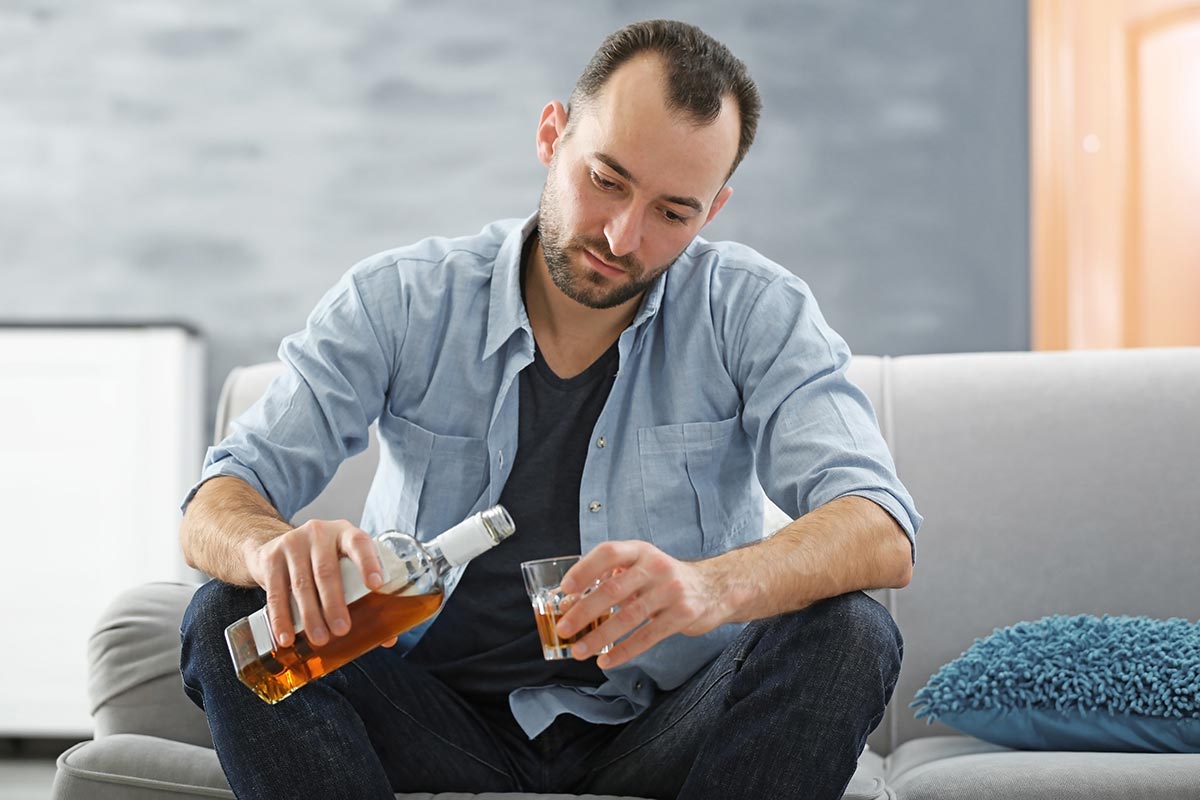8 Questions Non-Alcoholics Don’t Ask Themselves

Most Americans drink. In fact, based on studies by the National Institute of Alcohol Abuse and Alcoholism, more than 86% of all Americans drink at least occasionally. A further 26% of Americans regularly binge drink with the intent of getting drunk. If you occasionally, or not so occasionally, indulge in a lot of alcohol to get drunk, you're far from alone. And, if you're one of the 7% who qualify as heavy users, you're also not alone. More than 1 million people seek out treatment for alcohol addiction every year, but this number is only about 8.8% of the men and 7.5% of the women who need treatment. At the same time, alcohol abuse is responsible for 88,000 deaths every year, and nearly a quarter of all driving fatalities.
Drinking is legal, socially accepted, expected, and affordable in the United States. Nearly everyone does it, and it can be extremely easy to develop a problem under the guise of trying to have fun, to fit in, or just partying. But, the truth is that millions of Americans do have a drinking problem and if you are one of them, it is important to recognize that addiction so you can get help before it's too late.
Alcohol may seem harmless, but in large quantities, it is a killer, it will reduce your ability to be socially responsible, there for your family, or focused on your career. And, it will hurt your mental and physical health. If you think you have a problem, stopping to evaluate your drinking and habits may help you to take the steps needed to get help.
8 Questions Non-Alcoholic People Do not Ask Themselves
1. If I Can Go X Days Without Drinking, Do I Really Have a Problem?
While it's easy to think that you don't have a problem if you can go for a period of 1-2 weeks without drinking, this couldn't be further from the truth. Addicts frequently stop and start drinking, usually to prove to themselves that they don't have a problem. If you can go for a week without alcohol, you might think that you're fine and start binging again. People who aren't addicts don’t ask themselves if they can go a certain period without drinking, they just stop and they either don't pick it up again or they pick it up again in moderation. If you can't do that, and permanently, then you do have a problem.
2. Why Can't I Just Have A Few Drinks?
If you're addicted to alcohol, you likely lose a great deal of impulse control. This can result in the good intention to have one or two drinks turning into an all-night binge. While this sort of behavior is okay on a once-a-year basis, it can be a sign of addiction when repeated frequently. If you can't control yourself around alcohol, you should seek out treatment.
3. What's Wrong with Me/Why Can't I Stop Drinking?
"What's wrong with me, why do I keep drinking" is a question that has a very easy answer. There's nothing wrong with you, you're an alcoholic and you need treatment. If you are frequently angry or disappointed in yourself because of your drinking, you are likely addicted.
4. One More Won't Hurt, Right?
If you frequently find yourself asking yourself if you can have one more, and then following through and having one more, you may have a problem. Alcoholics are often in denial of their addiction, which can result in a great deal of excuses. For example, if you find yourself creating reasons to drink more, even if they are "I had a bad week", "X person yelled at me", "I deserve it", you might be dependent on alcohol.
5. If I Skip Meals Can I Drink More?
Most of us are aware that alcohol causes weight gain, and it's okay to offset that. But if you find yourself skipping meals or asking yourself if skipping meals works so that you can have the alcohol – you likely have a problem. Valuing a drink over a healthy meal is okay on a one-time basis but on a regular basis, it is highly indicative of a problem. Similarly, if you find yourself regularly weighing the value of sleep, home comforts or utilities (I.E. buying alcohol instead of paying your electric bill), or hobbies over alcohol and alcohol wins, you have a problem.
6. Would I Be Better at X If I Didn't Drink?
If you're asking yourself if your job, family life, school, or other performance is being affected by alcohol, you have a valid reason to question your use of alcohol. If you're asking this question, you should stop drinking, and if you can't, seek out help. If alcohol is affecting your life decisions, career, or academic performance, it is hurting you and your future.
7. Everyone Blacks Out, Right?
While 'blacking out' happens to many binge drinkers occasionally, it's something that's highly indicative of problematic alcohol usage. Blacking out means that you've drunk so much your brain is no longer capable of remembering what you were doing. If this happens on a regular basis or you have frequent memory lapses when you drink, you are drinking too much and far too often. People with a healthy relationship with alcohol do not black out.
8. Why Don't I Feel Normal Without a Drink?
If you are drinking to feel normal, to fit in, or to feel okay in social situations, you are using alcohol as a coping mechanism. Someone who doesn't have a problem with alcohol will not ask themselves why they don't feel normal or okay, simply because they already feel normal and okay. This extends to mental feelings of anxiety and discomfort before you have a drink, cravings for alcohol so that you can cope with social settings, and to physical discomfort. If you need to drink to handle any situation, you have a problem.
Recognizing symptoms of alcohol dependence or addiction in yourself can be discomfiting, uncomfortable, and even painful. Unfortunately, alcohol addiction is extremely common, and if you have a problem, there is no shame in it. However, you should take the steps to get help for yourself, for your health, and for your family or future. No matter where you are in life, alcohol dependence will hurt you, cause you to make reckless decisions, and may erode the life you are building for yourself. Alcoholics damage their physical health, neglect their relationships and family, engage in reckless behavior and often end up in legal trouble, and even hurt others.
Going into treatment will mean giving up alcohol, but it will also mean going into therapy to learn coping skills that will help you to live and be happy without drinking. It will help you to make friends and meet people who have experienced similar things, and most importantly, it will help you to take control of your life.
The Anaheim Lighthouse is a modern and effective addiction treatment center in Southern California. To talk to us about addiction treatment programs at our affordable drug and alcohol rehab that fit your needs, call (844) 494-4939.














